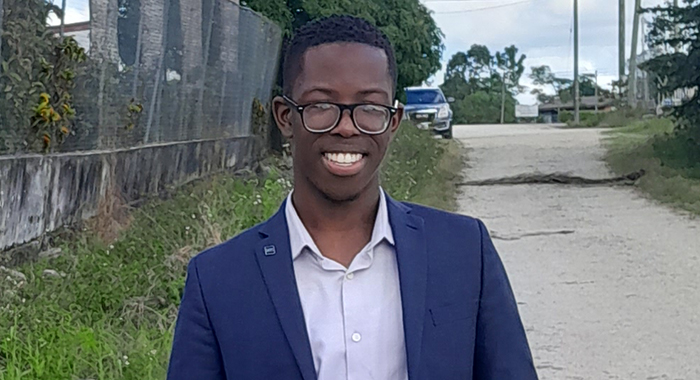Recently, I found myself in a short but powerful conversation with several lifelong members of a Christian denomination. During our talk, one of the speakers recounted a recent story of mistreatment she had experienced at the hands of some of the church leadership. Despite the hurt, she ended her story with a simple, unwavering, “I’m never leaving.” Walking away from that conversation, I said to those present, “I have my next article.”
This conversation is not an uncommon one, and the story is all too familiar. Over the years, many devout believers have found themselves hurt by church leadership, and have turned a blind eye, driven by tradition, loyalty, or a belief that staying is the right thing to do. Similarly, for 25 years, many Vincentians have voted along family lines, out of habit rather than conviction. This neglects thoughtful analysis of the options being offered to make a decision truly based on who will best serve the needs of the country.
While rooted in cultural pride, this has led to both stagnation and decline in many areas of governance and leadership across our island state. Independent institutions have all but vanished, infrastructural development often seems tied more to political convenience than long-term benefit, and the erosion of decency and lack of economic opportunity has created space for a struggling youth to turn to violent criminal behaviour. Yet, we refuse to hold our leaders accountable.
Moreover, the disease of blind die-hard loyalty has created a culture where unpatriotic activity is not only allowed but rewarded. Many of our country’s ministers and senior public servants have fallen into this trap by allowing their decisions to be motivated by political pressure rather than by devotion to their country and the prosperity of their people. Far too often, they are coerced into carrying out the directives of political leaders, either out of fear or for personal profit. Even within the popular political parties, parliamentarians with good intentions become compromised by the immoral behaviour of their party, eventually mirroring the corruption around them or refusing to challenge it. While they benefit from the physical aspects of this systemic feature, they suffer morally and mentally, yet remain silent.
The effects of this dysfunction are not confined to the political elite. They ripple across the nation and are perhaps most tragically felt by our youth, arguably the least patriotic generation in recent history. From working young adults to primary school students, young people do not want to vote, work, or even live in St. Vincent. Ask them where they want to be in five years, and the answer is often elsewhere: the UK, Canada, the United States. While the pull of Western culture certainly plays a role, it’s not propaganda that drives them away, it’s the reality they see every day. For years, the systemic poverty and recycled hardship endured by their parents and grandparents who have stayed present as a warning for life lived within our borders. There is no compelling vision for their future in St. Vincent and the Grenadines. No narrative of possibility. No widely embraced ideal that says, this is home, and it’s worth fighting for.
For all the fingers that we point at political parties, national leaders, and members of the civil service, we too often neglect to acknowledge the significance of the educated professionals’ failure to make their voices heard as a leading cause of the state that we are currently in. That is to say, the current government administration has been emboldened by the silence of the educated, traveled, and experienced professionals who left our shores with promise, achieved great things, experienced much, and returned home only to fall silent. Their voices, seasoned, insightful, and powerful, could steer the national conversation, challenge bad policy, and disrupt complacency. But many have chosen comfort over confrontation. In their silence, weakness has found strength. Their indifference and, in some rare cases, only quiet rebellion have allowed for decades of arguably treasonous sabotage of our national growth, prosperity, and progress in addition to violent abuse of our people.
The monolith of a figure that has been crafted over the past 50 years, first as a student, then a professor, parliamentarian, and now prime minister, does not and never has transcended the ideal of what the blue, yellow, and green represent. They speak to our collective identity: the boundless beauty of the sea, the richness of our land, and the enduring strength of our people. Here’s the truth we often ignore: we have options. We always have the option to change the status quo, to do things differently. We can think beyond red and yellow. Independent candidacy. Coalition government. These aren’t far-fetched fantasies, they’re viable, proven approaches that have worked in our own history and in countries across the region. Would we rather see ourselves in the same place in five years?
Too easily we doubt the Vincentian spirit of innovation and perseverance that will push, despite the odds, to create desired realities. That same spirit of resistance and reinvention saw Chatoyer, an indigenous Garifuna chief, defeat a colonial empire that possessed the world’s most advanced weaponry with strategy and unbreakable will. We are his descendants, and that power is within us.
As the great leader John F. Kennedy said, “Ask not what your country can do for you, but what you can do for your country.”
Daniel Burgin
The opinions presented in this content belong to the author and may not necessarily reflect the perspectives or editorial stance of iWitness News. Opinion pieces can be submitted to [email protected].






